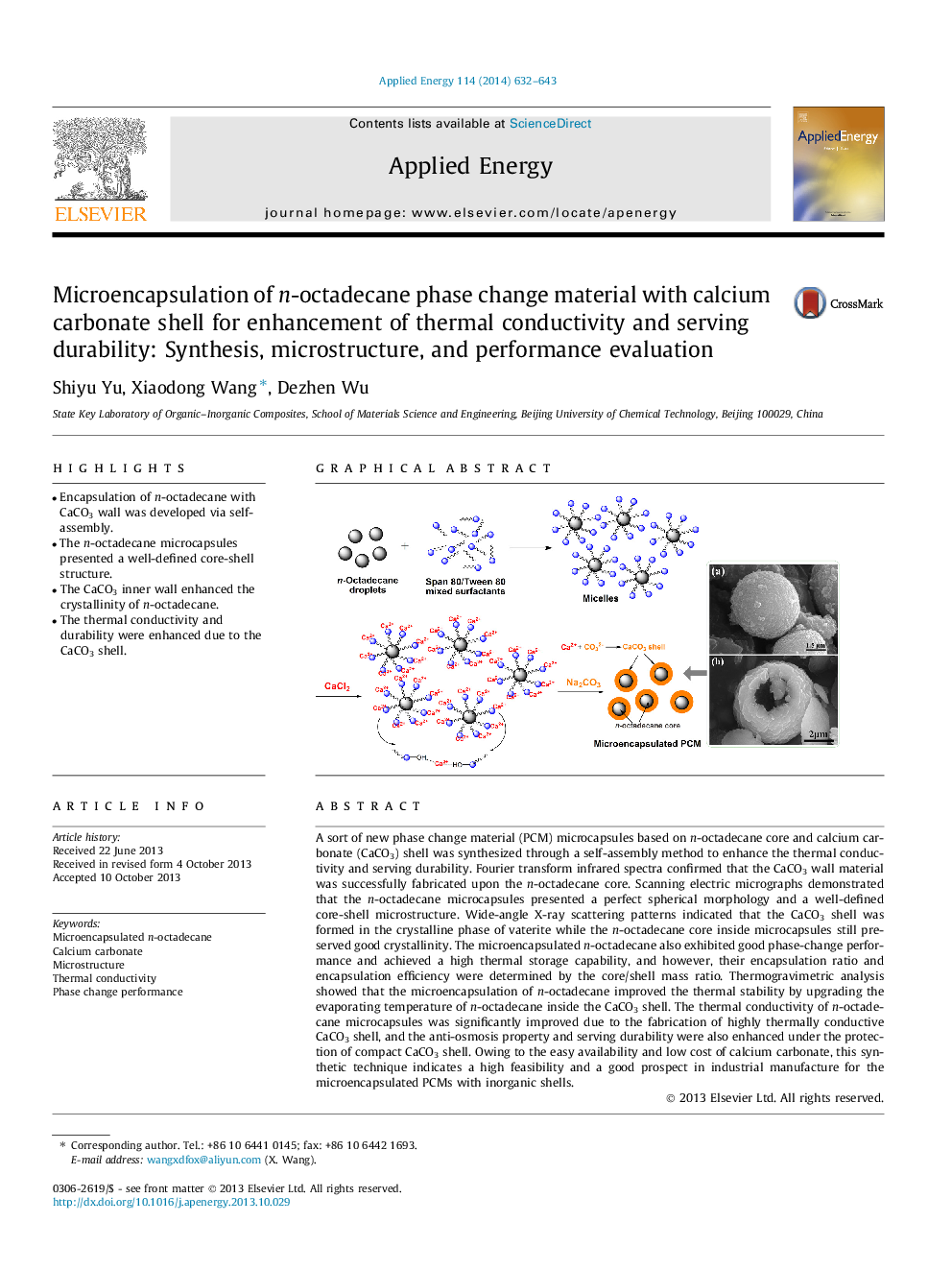| Article ID | Journal | Published Year | Pages | File Type |
|---|---|---|---|---|
| 6691694 | Applied Energy | 2014 | 12 Pages |
Abstract
A sort of new phase change material (PCM) microcapsules based on n-octadecane core and calcium carbonate (CaCO3) shell was synthesized through a self-assembly method to enhance the thermal conductivity and serving durability. Fourier transform infrared spectra confirmed that the CaCO3 wall material was successfully fabricated upon the n-octadecane core. Scanning electric micrographs demonstrated that the n-octadecane microcapsules presented a perfect spherical morphology and a well-defined core-shell microstructure. Wide-angle X-ray scattering patterns indicated that the CaCO3 shell was formed in the crystalline phase of vaterite while the n-octadecane core inside microcapsules still preserved good crystallinity. The microencapsulated n-octadecane also exhibited good phase-change performance and achieved a high thermal storage capability, and however, their encapsulation ratio and encapsulation efficiency were determined by the core/shell mass ratio. Thermogravimetric analysis showed that the microencapsulation of n-octadecane improved the thermal stability by upgrading the evaporating temperature of n-octadecane inside the CaCO3 shell. The thermal conductivity of n-octadecane microcapsules was significantly improved due to the fabrication of highly thermally conductive CaCO3 shell, and the anti-osmosis property and serving durability were also enhanced under the protection of compact CaCO3 shell. Owing to the easy availability and low cost of calcium carbonate, this synthetic technique indicates a high feasibility and a good prospect in industrial manufacture for the microencapsulated PCMs with inorganic shells.
Related Topics
Physical Sciences and Engineering
Energy
Energy Engineering and Power Technology
Authors
Shiyu Yu, Xiaodong Wang, Dezhen Wu,
